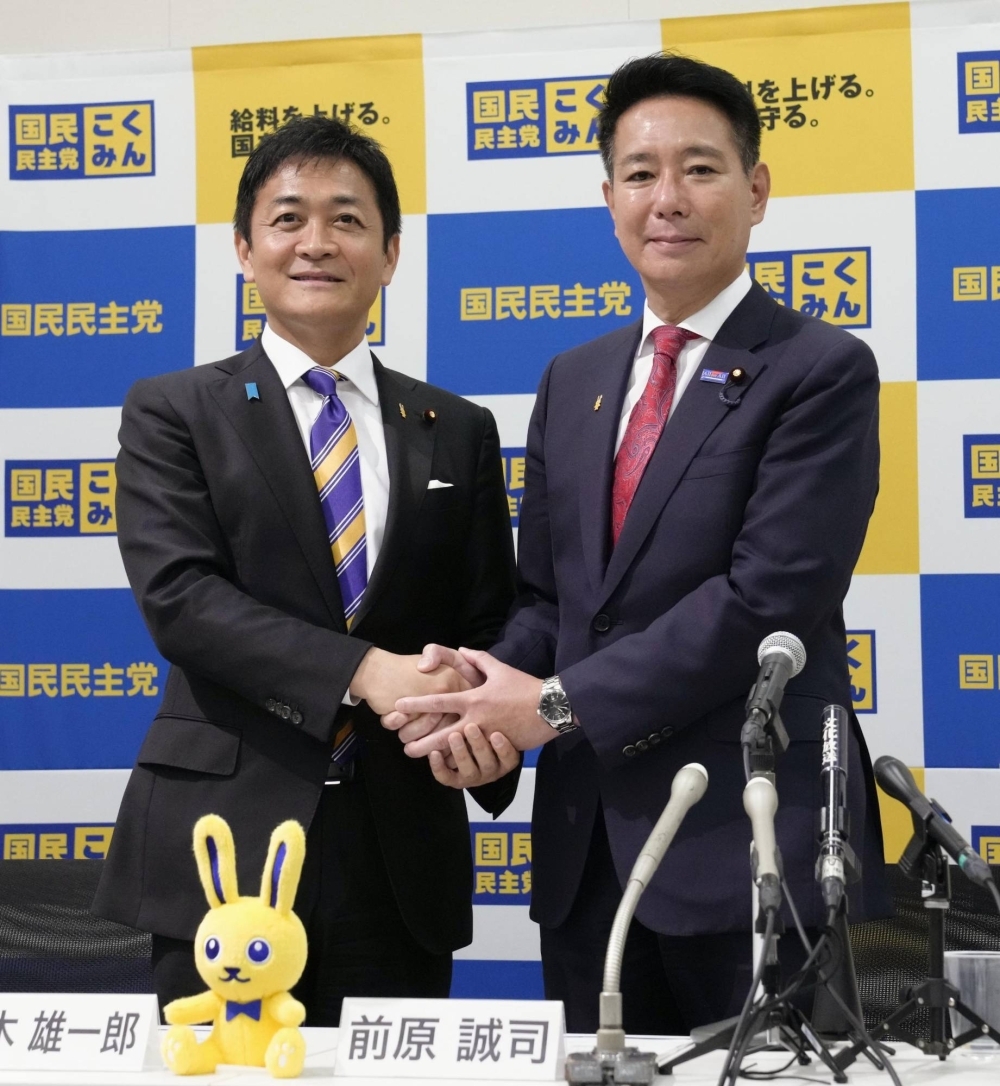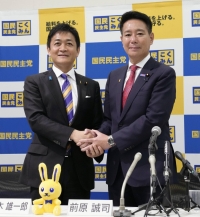The opposition Democratic Party for the People's leadership race officially began on Monday, with the two candidates holding a joint news conference.
The main issues in the leadership election include the party's stance toward the ruling Liberal Democratic Party and cooperation with other opposition forces.
The outcome of the election could affect the landscape of the next House of Representatives poll, observers said.
At the news conference, incumbent DPP leader Yuichiro Tamaki, 54, who is seeking another term, said that he wants to "make the DPP stronger and bigger by adhering to the principle of 'resolution over confrontation.'"
The other candidate, deputy DPP chief Seiji Maehara, 61, said it was "important to seek a change of government by confronting the ruling parties through cooperation with other opposition parties while focusing on policies and standing on the 'non-LDP and non-JCP (Japanese Communist Party)' principle."
In contrast to Maehara's willingness to cooperate with Nippon Ishin no Kai and other opposition parties, Tamaki said that he would "move forward without easily going back to the old idea of forming a big group."
Maehara, however has argued that cooperation among opposition parties "for a drastic change of government will actually change Japan."
The winner of the election will serve as party leader until September 2026, after Tamaki's current term expires.
In the election, the two candidates will compete for a total of 111 points, with the party's 21 sitting Diet members having two points each and its 13 prospective candidates for the next Lower House election having a point each.
Meanwhile, 28 points are allocated to each of two groups — the party's local assembly members and rank-and-file party members and supporters. The D'Hondt method will be used to convert their votes into points.




